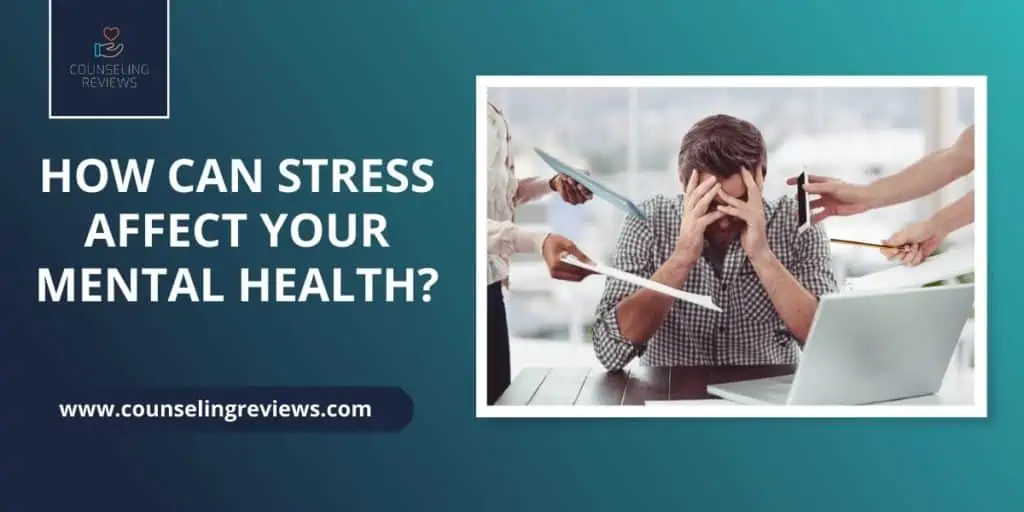How Do Stress And Mental Health Struggles Affect Decision-making

In moments of profound stress or when grappling with mental health challenges, the capacity for rational thought can feel agonizingly distant. Seemingly simple choices morph into complex dilemmas, and the clarity needed to navigate daily life becomes shrouded in fog. The interplay between stress, mental health, and decision-making is a critical area of study, revealing how these conditions can fundamentally alter our cognitive processes.
This article delves into the intricate mechanisms through which stress and mental health struggles impair decision-making abilities. We'll explore how conditions like anxiety, depression, and chronic stress disrupt the brain's neural pathways, leading to impulsive actions, risk aversion, or paralysis in the face of choice. By examining scientific research, expert opinions, and real-world examples, we aim to provide a comprehensive understanding of this pervasive issue and offer insights into strategies for mitigating its impact.
The Neuroscience of Stress and Decision-Making
When faced with stress, the body's fight-or-flight response kicks in, flooding the brain with hormones like cortisol and adrenaline. This surge prepares us for immediate danger, but it also impairs higher-level cognitive functions.
The prefrontal cortex, responsible for rational thought, planning, and decision-making, becomes less effective. At the same time, the amygdala, the brain's emotional center, takes over, driving impulsive and emotionally charged reactions. This neural shift makes it difficult to weigh options carefully and consider long-term consequences.
Chronic stress can lead to long-term changes in brain structure and function, further exacerbating these impairments. Studies have shown that prolonged exposure to cortisol can shrink the hippocampus, an area crucial for memory and learning, impacting our ability to recall past experiences and make informed decisions (Sapolsky, 2004).
The Impact of Anxiety and Depression
Anxiety disorders are characterized by excessive worry and fear, leading to indecisiveness and risk aversion. People with anxiety may overanalyze every possible outcome, becoming paralyzed by the fear of making the wrong choice. This can manifest in both minor everyday decisions and major life events.
Depression, on the other hand, often leads to a pessimistic outlook and a diminished sense of motivation. Individuals experiencing depression may struggle with apathy, making it difficult to engage in the decision-making process at all. Even simple tasks like choosing what to eat can feel overwhelming.
Research indicates that both anxiety and depression can disrupt the balance of neurotransmitters in the brain, such as serotonin and dopamine. These neurotransmitters play a critical role in regulating mood, motivation, and cognitive function, all of which are essential for sound decision-making.
Specific Cognitive Impairments
Stress and mental health challenges can lead to several specific cognitive impairments that directly affect decision-making. These include impaired attention, reduced working memory, and difficulties with cognitive flexibility.
Impaired attention makes it difficult to focus on relevant information and filter out distractions, leading to hasty and ill-considered choices. Reduced working memory limits the ability to hold multiple pieces of information in mind simultaneously, hindering the ability to compare different options and weigh their pros and cons.
Difficulties with cognitive flexibility, the ability to shift between different perspectives and adapt to changing circumstances, can result in rigid thinking and an inability to consider alternative solutions. This can lead to perseveration, where individuals become fixated on a single course of action, even when it is clearly not working.
"Stress acts as a kind of cognitive tax, depleting the mental resources needed to make sound judgments," explains Dr. Emily Carter, a cognitive neuroscientist specializing in the impact of stress on executive functions.
Real-World Examples
The effects of stress and mental health on decision-making can be seen in various real-world situations. For example, individuals under chronic financial stress may make impulsive decisions regarding their finances, such as taking out high-interest loans or engaging in risky investments.
During times of crisis, such as natural disasters or public health emergencies, heightened stress levels can lead to panic buying and hoarding, driven by fear and a perceived lack of control. In the workplace, employees experiencing burnout may struggle to prioritize tasks and make sound judgments, leading to errors and decreased productivity.
Even seemingly minor decisions, like choosing what to eat, can be impacted. A study published in the Journal of Health Psychology found that individuals under stress were more likely to choose unhealthy comfort foods over more nutritious options.
Strategies for Mitigation
While the impact of stress and mental health on decision-making can be significant, there are strategies individuals can employ to mitigate these effects. These include stress management techniques, seeking professional help, and cultivating self-awareness.
Stress management techniques such as mindfulness meditation, deep breathing exercises, and regular physical activity can help regulate the body's stress response and improve cognitive function. Engaging in activities that promote relaxation and enjoyment can also help reduce stress levels.
Seeking professional help from a therapist or counselor can provide individuals with tools and strategies for managing anxiety, depression, and other mental health challenges. Cognitive behavioral therapy (CBT), in particular, has been shown to be effective in improving decision-making skills by helping individuals identify and challenge negative thought patterns.
Cultivating self-awareness is also crucial. This involves recognizing when stress or mental health struggles are impacting decision-making abilities and taking steps to slow down the process. Before making a significant decision, it can be helpful to take a break, consult with a trusted friend or family member, or seek out additional information.
Looking Ahead
Understanding the complex relationship between stress, mental health, and decision-making is essential for promoting well-being and fostering effective decision-making in all aspects of life. As research in this area continues to grow, we can expect to see the development of more targeted interventions and strategies for mitigating the negative impacts of stress and mental health on cognitive function.
Organizations and policymakers also have a role to play in creating supportive environments that prioritize mental health and reduce stress levels. This includes implementing policies that promote work-life balance, providing access to mental health resources, and fostering a culture of empathy and understanding.
By increasing awareness and implementing evidence-based strategies, we can empower individuals to make better decisions, even in the face of adversity, leading to healthier and more fulfilling lives.


















